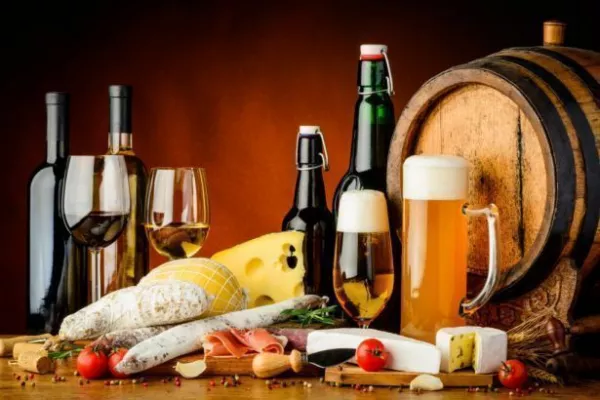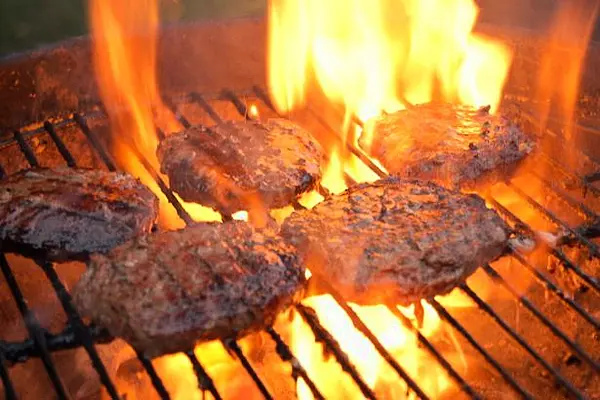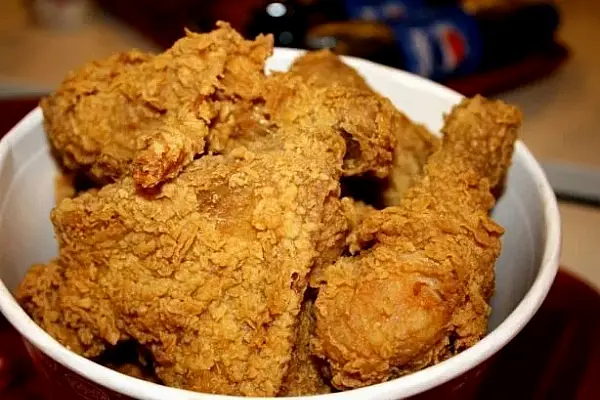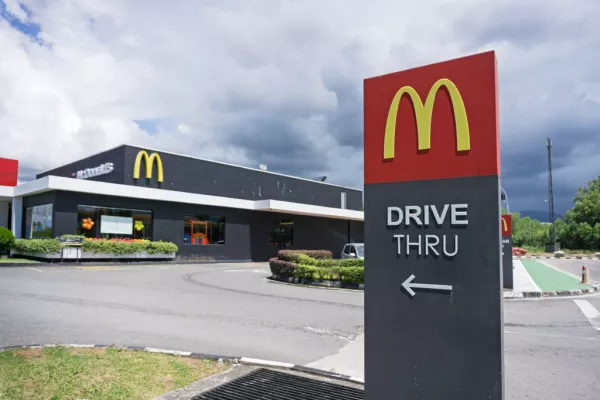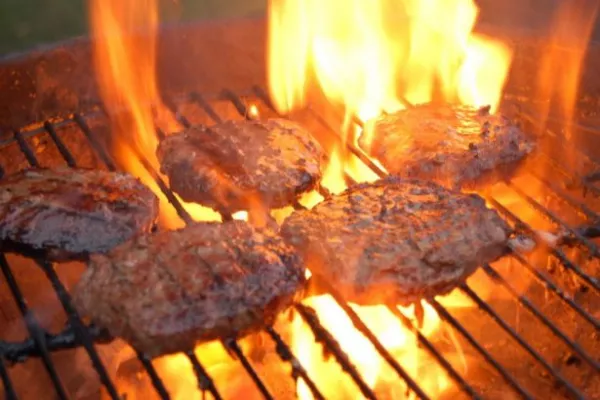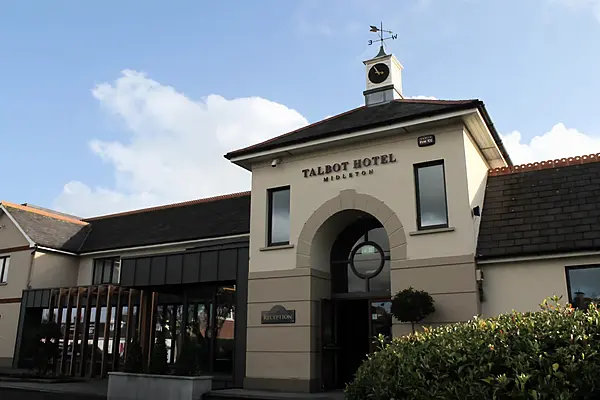Hospitality Ireland presents a round-up of global food, drinks and restaurant news.
"Virtual Canteen" Delivers For Meal Vouchers Firm Edenred
Edenred sees full-year core profits in the top half of its guidance range as more employers switch to its digital vouchers that allow workers to have meals delivered at home.
As more companies allow staff to work at least some of the time remotely due to the COVID-19 pandemic, they are also looking for new ways to deliver benefits, such as meal vouchers.
Edenred said on Thursday October 21 that strong demand for its "virtual canteen" and new client wins helped it beat third-quarter operating revenue forecasts.
The French company, which also has payment solutions and gift vouchers businesses, benefited from users spending funds accumulated during lockdowns as well.
"We are signing more and more agreements, we have more than 160 hundred meal delivery platforms connected to our platform," finance chief Julien Tanguy said on a call with analysts.
Edenred, known for its "Ticket Restaurant" vouchers, said digital solutions now account for 86% of its business volume.
It posted third-quarter operating revenue of €393 million, above analysts' mean forecast of €380 million, according to the company.
Its shares were up 0.8% at 0830 GMT on Thursday October 21, with larger peer Sodexo up 4% - partly boosted by Edenred and also catching up from recent declines, according to Morningstar analyst Michael Field.
Rising inflation is helping Edenred too.
"When we look at the employee benefits part of the business ... we see that the price of meals can increase and therefore companies may have to increase the face value of the vouchers," Tanguy told journalists.
The company now sees full-year earnings before interest, taxes, depreciation, and amortisation (EBITDA) in the top half of its 620-670 million euros guidance range.
Takewaway.com Shares Dip On Investor Day As Growth Target Disappoints
Just Eat Takeaway.com shares fell more than 3% in early Amsterdam trading on Thursday October 21 after the company released strategy information and targets ahead of an investor meeting.
Takeaway, the largest transatlantic food ordering and delivery service, has seen its shares drop 25% this year after New York City imposed a permanent cap on commissions that online companies may charge restaurants for orders - a decision Takeaway and others are challenging.
In Takeaway's presentation on Thursday October 21, it said that it would target Gross Transaction Value growth - a common measure in e-commerce - in the "mid teens" for 2022.
The company repeated its full-year 2021 forecast for an earnings before interest, tax, depreciation and amortisation (EBITDA) margin of -1%-1.5% on a gross transaction value of €28 billion-€30 billion. That translates to an EBITDA loss of €280 million-€380 million.
For 2022, the company told investors to expect the negative margin to improve to -0.6% to -0.8%, and that it expects a positive margin in "long term" as GTV doubles over the next five years.
Bernstein analysts, who rate Takeaway shares "Outperform", said in a note that the 2022 guidance was lower than expected but "we remain positive about the position of Takeaway in its core markets."
The shares were down 3.2% at €69.49 at 0851 GMT on Thursday October 21.
Investors have called on the company to address the competitive situation of its U.S. GrubHub operation, which it acquired for $7.3 billion in June, including potential disposals. And they want Takeaway to outline its strategy on grocery delivery, as new players have quickly entered the European market this year.
CEO Jitse Groen was due to speak on Thursday afternoon. A slide deck published ahead of the presentation said the company is planning to build its grocery operation via a mix of partnerships and self-owned "dark stores" - outlets where orders are prepared and couriers pick them up but no customers are allowed - the construction of which it said is already included in its forecasts.
It said that the company would "continually evaluate" its position in various markets. Markets where Takeaway does not have a number one position include France, Portugal, Bulgaria, Norway, Colombia and the United States, although it is the largest player in New York City.
Pernod Ricard Expects Sales Growth To Moderate After Strong Q1
French spirits maker Pernod Ricard said that solid sales growth could moderate in the 2022 fiscal year, after strong demand in China, the United States, India and Europe helped it post above-forecast sales in the first quarter.
Pernod - which owns Martell cognac, Mumm champagne and Absolut vodka - reported a 20% rise in like-for-like sales to €2.718 billion in the three months to Sept. 30, above market expectations for a 15.7% rise.
The world's second-biggest spirits group said consumption by people staying at home remained resilient, while the reopening of bars and restaurants as coronavirus restrictions eased also helped, notably in Europe.
Travel retail was still subdued although the company benefited in the quarter from a low comparison base.
Pernod Ricard's fiscal year started on July 1.
When asked if he was comfortable with average analyst expectations of 9.7% sales growth for the full year, Chairman and Chief Executive Officer Alexandre Ricard told Reuters "we give a qualitative guidance".
"We are confident but we need to go through Christmas and the Chinese New Year (to have more visibility)," he said.
Pernod expected "good sales growth to continue through the year", he said, adding that the first quarter had benefited from a low comparison base a year ago, when pandemic curbs had hit businesses in many countries.
That comparison base would progressively become less favourable as the year progressed, Ricard added.
"The comparison basis will get more complicated, the longer we go on."
Despite strong sales, Pernod shares were off 1.1% at €196.60 by 0819 GMT on Thursday October 21.
"There is no change to the outlook, and although the beat is significant, it is only one quarter so we think consensus upgrades will probably be minor at this stage," wrote Investec analysts in a note.
Credit Suisse analysts pointed out that "significant investment in Advertising and Promotion(A&P) and structure costs should temper margin expectations," for the year.
The strong start to the year reflected a 9% sales jump in the United States, Pernod Ricard's top market, with good replenishment ahead of the festive season and a rebound in demand for Jameson Irish whiskey as bars and restaurants reopened after COVID restrictions were eased.
Supply chain concerns ranging from difficulties to find containers or truck drivers led some clients in the United States to stock up ahead of the holiday season, Ricard said.
In China, sales jumped 22%, driven by demand during the Mid-Autumn Festival and Martell cognac price hikes.
"The Mid-Autumn Festival went well and our inventory level is healthy," Ricard said.
Europe also had a strong start, with sales rising 22% as consumers headed to bars and restaurants amid easing COVID restrictions.
"People are keen to connect socially and resume (pre-COVID) lifestyles," Pernod's finance chief Helene de Tissot told analysts.
China contributes around 9% to Pernod's sales and is its second-largest market.
Global travel retail sales rose 55% year-on-year, returning to growth in all regions and benefiting from a very favourable comparison base.
Foodpanda Partners With Indian Cloud Kitchen Firm Rebel Foods
Online takeaway delivery firm Foodpanda is partnering with Indian virtual kitchen company Rebel Foods to roll out the latter's virtual restaurant brands at 2,000 outlets across ten Asian countries, Foodpanda's chief operating officer said.
"Foodpanda is Asia's largest food delivery company...while Rebel Foods is the largest virtual brands operator in the world," COO Pedram Assadi told Reuters. "This is the largest virtual food brand partnership of its kind."
Under the deal, Foodpanda, which is owned by Berlin-based Delivery Hero, has recruited and trained hundreds of outlets to franchise the global restaurant brands created by Rebel Foods and offer their food on its platform.
Mumbai-based Rebel Foods, which offers multiple cloud kitchen brands across countries including India and the United Arab Emirates, raised $175 million this month at a $1.4 billion valuation. It plans to launch an IPO in the next two years.
Cloud kitchens which prepare food for delivery got a boost from the shift to online buying during the COVID-19 pandemic. Low overhead costs versus traditional restaurants and fast scale-up potential have also enabled "internet restaurant chains" to grow quickly.
Foodpanda's partnership with Rebel Foods is already being tested in six of the twelve Asian markets that Foodpanda is active in, and there is the option to expand to the other regions Delivery Hero is active in, Assadi said.
He did not give any financial details of the deal, but described it as core to Foodpanda's strategy in Asia - along with its expansion into grocery delivery in Southeast and East Asia - as it takes on competitors such as British rival Deliveroo and Singaporean startup Grab Holdings.
"Over the last year, we now have built over 250 'cloud stores' that are operating grocery end to end, which makes us the largest e-commerce delivery player in APAC (Asia-Pacific)" Assadi said, referring to distribution centres dedicated to online grocery orders.
Delivery Hero, which is active in 50 countries worldwide, announced on Tuesday October 10 that it had invested $235 million in Berlin-based grocery delivery company Gorillas, as the global race to dominate the rapid delivery service sector intensifies.
Earlier this year, it also picked up a minority stake in Deliveroo.
Just Eat CEO Says Grubhub Will Be Part Of US Delivery Consolidation
The chief executive of Just Eat Takeaway.com said on Thursday October 21 that he expects newly acquired Grubhub to eventually be part of a consolidation in the U.S. delivery market, but signalled he is not currently open to selling the business.
"Over time there will inevitably be consolidation in the wider U.S. on-demand delivery market, as various players combine to optimise the last mile," Jitse Groen told investors in a livestreamed presentation.
Company management "expects Grubhub to be involved in this consolidation when it comes and intends to do so from a position of strength".
Asked whether he would consider selling or combining the whole of Grubhub's business, which Takeaway bought for $7.3 billion in June, Groen demurred.
"Grubhub is fresh," he said, but added that "anything that makes Grubhub a stronger player - we'll look at it".
Takeaway's shares are down 25% so far this year, in part due to the company losing market share in U.S. suburbs and after New York City, its biggest and strongest market, imposed a cap on the commission food-delivery companies can charge restaurants.
Investors have called on the company https://www.reuters.com/technology/eat-or-be-eaten-food-delivery-apps-have-knives-out-pandemic-boom-fades-2021-10-20 to address its competitive position in the United States - where Grubhub is pitted against Uber Eats and DoorDash among others - including by considering selling parts of its operations. They also want Takeaway to clarify its strategy on grocery delivery, where it competes strongly with Amazon-backed Deliveroo in Europe.
In a presentation, Takeaway it said it would target Gross Transaction Value growth - a common measure in e-commerce - in the "mid teens" for 2022.
The company repeated its full-year 2021 forecast for an earnings before interest, tax, depreciation and amortisation (EBITDA) margin of -1%-1.5% on a gross transaction value of €28 billion-€30 billion. That translates to an EBITDA loss of €280 million-€380 million.
For 2022, the company told investors to expect the negative margin to improve to -0.6% to -0.8%, and that it expects a positive margin in "long term" as GTV doubles over the next five years.
Bernstein analysts, who rate Takeaway shares "Outperform", said in a note that the 2022 guidance was lower than expected but "we remain positive about the position of Takeaway in its core markets."
Shares recovered some of their early losses after Groen's remarks and were trading down 0.6% at €71.36 at 1253GMT on Thursday October 21.
Chicago-Style Hot Dog Restaurant Chain Portillo's Valued At $1.9bn In U.S. Debut
Shares of Portillo's Inc rose 30% in their Nasdaq debut on Thursday October 21, valuing the restaurant chain known for its Chicago-style hot dogs at $1.9 billion.
The company's shares opened at $26. Portillo's sold 20.3 million shares in the offering priced at $20 apiece, the upper end of its price range, raising a little over $405 million.
Portillo's move to go public was also a sign that the U.S. IPO market has not lost steam and its market debut comes as restaurant chains benefit from a return to dining out brought by vaccine rollouts and easing COVID-19 curbs.
Portillo's, which is backed by private equity firm Berkshire Partners, traces its roots back to 1963, when Dick Portillo invested $1,100 into a small trailer to open the first Portillo's hot dog stand in Villa Park, Illinois, which he called "The Dog House."
The company, which was renamed Portillo's in 1967, has now grown across nine states in the United States to 67 restaurants, most of which feature double lane drive-thrus and also include dine-in, carryout and curbside access.
Portillo's menu features all-American staples such as Chicago-style hot dogs and sausages, Italian beef sandwiches, chopped salads, burgers, crinkle-cut french fries, homemade chocolate cake and milkshakes.
The company expects third-quarter revenue of $138 million, an over 15% jump from a year ago, according to its IPO filing.
Each Portillo's location, on average, served about 825,000 guests in the twelve months ended June 27.
Jefferies, Morgan Stanley, BofA Securities and Piper Sandler are among the underwriters for the offering.
Britain's Pret Enters Self-Service Coffee Machine Market
British coffee and sandwich chain Pret A Manger has teamed up with JDE Peet’s to trial self-service coffee machines, further evolving its business model after sales were hammered by the COVID-19 pandemic.
Pret has suffered as many of its just under 400 UK stores are located on high streets, at transport hubs and close to offices that have seen reduced occupancy during the crisis.
Pret, owned by investment group JAB and founder Sinclair Beecham, said on Friday its "Pret Express" machines will be introduced into convenience shops, petrol station forecourts, universities, healthcare facilities and workplaces.
The machines offer the same coffees and teas available in Pret shops.
JDE Peet’s, one of the world's largest consumer coffee companies, will be providing the self-service technology.
"This is new territory for Pret, which will allow more people across the country to enjoy Pret’s organic coffee and tea on the go, in places where there isn’t the right space to set up a new Pret shop," said Guy Meakin, Pret's UK trading director.
Last month Pret said it planned to double in size over the next five years, despite reporting a 256.5 million pound ($354.2 million) loss for 2020.
Other changes to its operating model include the launch of a subscription service for drinks.
Pret is also selling coffee lines through Amazon, Waitrose, Sainsbury's, Tesco and Ocado , has delivery partnerships with Deliveroo, Just Eat and Uber Eats and is trialing shops within Tesco stores.
Chipotle Sales Surge As Customers Devour Pricier Meals
Chipotle Mexican Grill Inc beat estimates for quarterly same-store sales on Thursday October 21, as customers returned to eating inside restaurants and paid more than ever for a new meat - smoked brisket - and other menu items.
The burrito and bowl chain has raised regular menu prices twice and its delivery prices three times since August 2020. Prices are now approximately 10% higher - which includes a total 17% hike in items for delivery - to offset rising beef, freight and labor costs.
CEO Brian Niccol told Reuters that customers can still get a lot of value out of a Chipotle meal, noting that its chicken burrito is still priced under $8 in many places.
"Because we've got such a strong value proposition, we like to take things in phases to make sure that the pricing we're taking is balanced with the growth that we're experiencing and that the cost is really not a transitory cost but a new, permanent cost," he said.
Overall, fast-food chains have raised menu prices by 6.7% over the last 12 months, and other restaurants by 5.2%, the U.S. Bureau of Labor Statistics reported on Oct. 13.
Some of Chipotle's price hikes will roll off this quarter and customers have not resisted paying more for their quesadillas, Niccol said.
More customers are also coming to Chipotle restaurants as seating areas reopen, and the chain is still on track to build 200 new locations this year, he said.
Chipotle's limited-time smoked brisket, which launched in September, costs $10.25 on average as an entree in restaurants, its most expensive new meat ever.
The fast-casual chain posted a 15.1% surge in comparable sales for the quarter ended Sept. 30, compared with analysts' average estimate of 13.4% growth, according to Refinitiv data.
The company also forecast sales growth in the low to mid double-digits range in the current quarter, compared with estimates of 14% growth.
Americans who were cooking more in their kitchens during the pandemic-induced, work-from-home situation are now grabbing burritos and bowls on the way to work and social gatherings, and are trying new dishes.
Sales from digital orders - as opposed to those placed in person - grew 8.6% and accounted for 42.8% of sales.
Chipotle also said that its board increased its share repurchase authorization by $100 million, with $209.8 million available to buy back shares as of Sept. 30.
News by Reuters, edited by Hospitality Ireland. Click subscribe to sign up for the Hospitality Ireland print edition.
